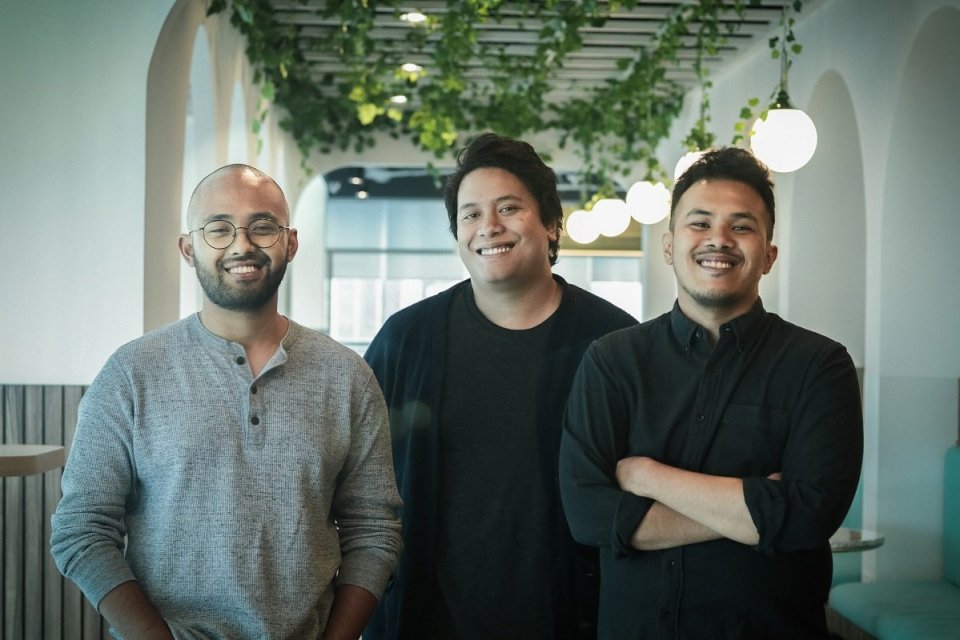Indonesia has a thriving gig economy. As many as 40m workers, or 30% of the local workforce, are underemployed. The country’s statistics bureau defines an underemployed person as one who works less than 35 hours per week and is willing to accept additional work for more pay.
To help gig workers and others supplement their incomes, former Gojek operations manager Wisnu Nugrahadi teamed up with university classmates Dimas Pramudya Putra and Margana Mohamad to develop Sampingan, a “micro-task” outsourcing company.
Margana Mohamad, now the company’s CCO, briefly ran his own outsourcing company. “[Margana] saw a lot of inefficiencies in managing the workforce, including sourcing and training them,” Nugrahadi told CompassList in an interview.
Many businesses need to hire short-term workers when they want to scale quickly and outsourcing could be used for this purpose. Meanwhile, underemployed workers are hungry for opportunities to earn more money. Sampingan was built to bring these two sides together.
According to Nugrahadi, Sampingan can help companies save up to 70% in temp labor costs. The company has worked with high-profile clients like Unilever, Danone, Gojek and OYO to gather data and business intelligence from various Indonesian regions, especially those outside Jakarta and other major urban centers.
Emphasis on skills training
Modeled along the lines of Amazon’s Mechanical Turk (MTurk), a crowdsourcing marketplace for businesses to outsource their processes and jobs to a distributed workforce, Sampingan's workers perform tasks like data entry and answering surveys, but there are also assignments that bring them to the field to collect data and business intelligence.
Depending on its clients’ needs, Sampingan can source for traditional temp workers who are employed for a few days or weeks, or help companies break up their jobs into micro-tasks that are then distributed to Sampingan's workers according to their experience and skills. For jobs that require fieldwork, workers who live in the vicinity of the research area are prioritized.
The company provides basic training to new workers and also online and offline training to improve workers’ skills and productivity. “The online version would be all about how to do the jobs and do it more efficiently, so they can earn more,” Nugrahadi said. “Outside of the tech part, there's also the human interaction part, so we provide soft-skills training too,” he added.
Sampingan also has processes in place to verify the data submitted by each worker, said Nugrahadi. For example, if workers had to take pictures of certain restaurants and their menus, Sampingan checks if the photos were actually taken by the workers and are “not just some random pictures they Googled.” Clients also verify the information before making final payment.
Building tech capacity
The co-founders did not have experience in tech development, although Nugrahadi and Putra had previously worked in Gojek. The three earned business degrees from Universitas Padjadjaran and went their separate ways before coming together to build Sampingan.
Initially, the co-founders used simple online forms and WhatsApp to manage their budding micro-task marketplace. “Rather than building a product from scratch only to find that nobody wants to use it, we have always focused on what people are doing right now and how to make it more efficient,” Nugrahadi said.
But they hit a wall with what they could do with their MVP and hired a development team to build their app. “Finding these talented engineers was quite a challenge. We're grateful that we have strong people in our team who can help us establish the vision that we want,” he added.
In October 2019, Sampingan raised US$1.5m in Series A funding from Golden Gate Ventures and Singapore-based accelerator Antler. The company will use most of the money to hire more engineers and product developers. It is also seeking business development staff who “understand strategy but can also execute,” Nugrahadi said.
“The majority of our investment goes to the people and therefore the costs associated will go there as well. I think it's a worthy investment, because when you're building something you need the best and brightest. You need people who are smarter than you working on solving the problems,” he added.
Creating more opportunities
Eventually, Sampingan wants its workers to “level up” and take on more complex tasks for higher pay. Nugrahadi believes that these jobs are those that automation and AI cannot yet replace, but still provide an opportunity for optimization through technology.
“More than 25m jobs will be lost because of [automation and AI]. We envision something different. There will be a synergy between the individuals who work and the technology that enables them to work more efficiently,” said Nugrahadi.
Nugrahadi declined to comment when asked when the company will break-even or become profitable. However, he stressed they aim to reach out to more gig workers and the underemployed.
“Every day lost means a day where an individual can't earn with us and they can't pay for tuition or other expenses for their family,” he said.
















